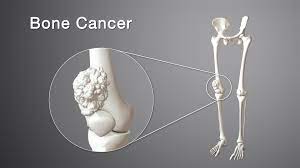An anti-anxiety medication is a drug, or other medical intervention, that decreases anxiety without sedation. This advantage is compared to other neuroleptic drugs, which only increase anxiety, as opposed to decreasing it. In addition, these classes of therapeutic interventions or psychoactive substances can also be known as anxiotropics. What makes these meds particularly attractive to the anxiety sufferer is that they are highly effective and carry little or no risk of side effects.
Many of today’s commonly used anti anxiety medications fall under this broad class. Common examples are benzodiazepines, including Ativan, Doral, Xanax, and Klonopin. Although many people take these medications for very common forms of depression and anxiety, these medications are also used for a variety of other medical conditions. For example, some people may have problems with alcohol withdrawal while taking benzodiazepines for anxiety attacks, a problem known as rebound insomnia.
Other benzodiazepines such as Librium and Restoril are used to treat patients who are suffering from a variety of medical conditions. For example, depressed individuals on antidepressants can often become anxious during periods of time when they are taking their medications. Therefore, anti-depressants like Zoloft, Celexa, Paxil, and Lexapro are often used in conjunction with benzodiazepines. Likewise, some patients on anxiolytics, such as Ativan, may also experience a form of rebound insomnia while taking these drugs. Anti-anxiety meds that include benzodiazepines and antidepressants have been found to be highly effective in the treatment of phobias and general anxiety disorders.
The most commonly prescribed anti-anxiety medications include anti-anxiety drugs, which are commonly known as benzodiazepines. These drugs work by limiting and preventing the brain’s transmission of chemicals that cause anxiety and panic. They work by causing the nervous system to override the ‘reward’ circuits in the brain and switch the focus of the brain away from the stressful stimuli. Because they are so easily abused, anti-anxiety drugs should be avoided by those suffering from psychiatric illnesses such as bi-polar disorder, serious depression, and schizophrenia. They should also be avoided by pregnant or nursing women, those with a history of alcohol or substance abuse, and those with a history of drug or alcohol addiction.
Tricyclic anti anxiety medications, also known as TCA, are another type of anti-anxiety medications. These drugs are usually used in more severe cases of anxiety. TCA work by altering the chemicals and neurological activity of the brain. This can lead to various types of side effects such as confusion, drowsiness, slurred speech, disorientation, and memory loss. Individuals should not use TCA if they suffer from a history of alcohol or substance abuse, unless they are prescribed by a doctor.
The two most widely used non-prescription anti anxiety medications arequetine and azapirones. They work by increasing the patient’s metabolic rate and thus reducing the symptoms of depression, panic attacks, and anxiety. Both medications have been approved by the FDA. However, they should only be taken under strict medical supervision because of the extremely dangerous side effects. Individuals who suffer from anxiety disorders should consult their health care provider before starting any form of medication.




